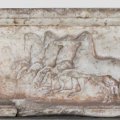A University of Queensland academic has developed a method for computing fair prices for a new derivative security being traded on world share markets.
In constructing the valuation formula, Commerce Department Associate Professor Stephen Gray and Professor Robert Whaley of Duke University in North Carolina found American investors had consistently been paying inflated prices for the exotic derivative known as a bear market warrant.
Their formula will ensure investors pay a fair price for the warrants if and when the instrument is introduced to the Australian share market.
Like put options, exotic derivatives provide a kind of insurance policy for share market investors, locking in a lower bound for the value of their stock portfolio.
If the share market crashes, the derivative security generates a cash pay-off that exactly offsets the decline in value of the investor's share portfolio.
Unlike a put option, which generates a pay-out if the market falls below some fixed level, the bear market warrant generates a pay-out if the market falls below its recent level (for example, as at three months previous).
Dr Gray said the warrants were consequently very attractive to investors because of the high share market levels currently being reached.
'In other words, their potential pay-out rises as the share market rises,' Dr Gray said.
The researchers developed the formula using Chicago Board Options Exchange data for the past year. Their work was funded by a $6000, Centre for International Business and Economic Research grant.
The formula is currently being refined for publication in a leading American finance journal.
Dr Gray said the warrant's introduction to the Australian share market depended on its continued popularity in the United States since its introduction there a year ago.
Inputs required for the warrant valuation formula include the share market index level, a measure of share market volatility, average dividend yield and a short-term interest rate.
They discovered American investors, including pension fund managers and individuals securing funds for retirement, had consistently paid an average of 15-20 percent more for the warrants than they should have.
'Until our formula, nobody knew what these derivatives were worth as they have only been available in the United States for 12 months. People were flying blind. However, market prices should fall into line once our valuation formula is published,' Dr Gray said.
'Historically, when new exotic derivatives such as these warrants are introduced to share markets, prices tend to go crazy until a rigorous formula has been developed. Australian investors will benefit from these fairer prices once the warrants become available here.'
He said the security offered by derivatives such as the warrants could convince some investors to switch funds from traditional investment areas such as property and fixed interest to the share market. When properly used, derivatives allowed investors access to the higher returns of the share market, while immunising them against the effects of a share market crash, he said.
The warrants' initial inflated prices stemmed from continuing investor anxiety about the possibility of another worldwide share market crash, a phenomenon dubbed 'crashaphobia' in the United States, Dr Gray said.
'There seems to have been too much investor emphasis on protecting against another crash. Investors assign too high a probability on a crash in the near future when history tells us these only occur once every 70 years on average,' he said.
'It's like charging for fire insurance assuming that a person's house is likely to burn down once every five years. When people work out they're being overcharged, you're likely to see prices come back in line. That's the point of our valuation formula.'
For more information, contact Dr Gray (telephone 3365 6586).
.jpg)



